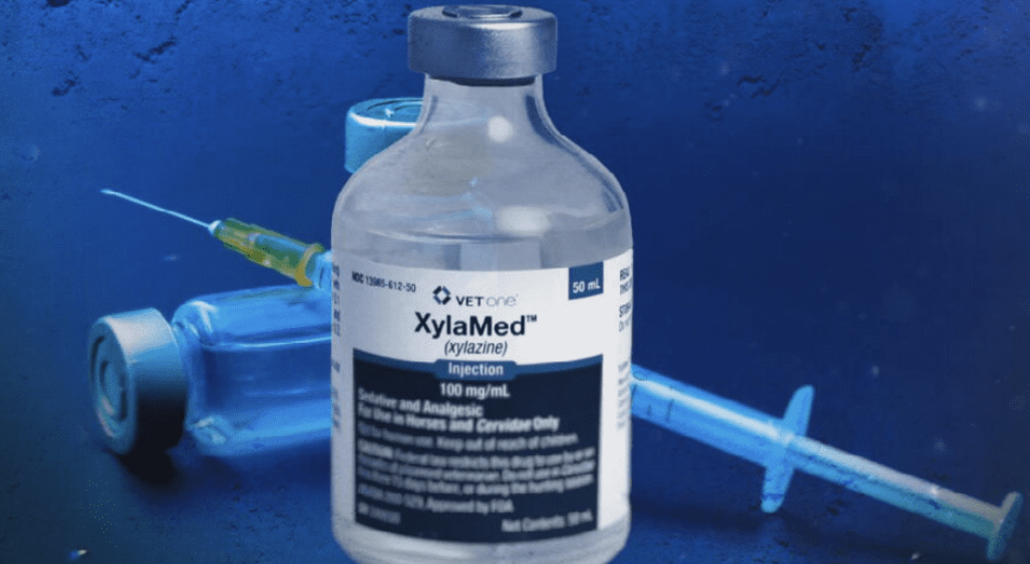Do prescription opioids help or hurt anxiety? Prescription opioids can provide short-term relief for anxiety symptoms, but they may worsen anxiety and mental health over time. This article explores how opioids affect anxiety, compares them to safer anxiety treatments, and offers practical advice for those seeking help.
Key Takeaways
- Prescription opioids provide only short-term relief for anxiety but can lead to increased dependence and worsening symptoms over time.
- Chronic use of opioids alters brain chemistry, heightening anxiety risks and complicating mental health management.
- Approved anxiety treatments, such as SSRIs and benzodiazepines, are safer alternatives to opioids and recommended by healthcare professionals for effective anxiety management.
Do prescription opioids reduce anxiety symptoms in the short term?
Prescription opioids like hydrocodone, oxycodone, and morphine are known for their potent pain-relieving properties. However, their sedative effects can also temporarily blunt anxiety symptoms, offering a fleeting sense of relief. These medications work by binding to mu-opioid receptors in the brain, which are involved in pain and pleasure, leading to the release of dopamine and a subsequent feeling of euphoria and relaxation. Oxycodone acts as an effective option among opioid analgesics that are often prescribed for managing severe pain and are classified as opioid drugs, pain medicine, and opioid medication called narcotics, including opioid pain medicines.
While this initial sedative effect might seem beneficial, it comes with significant risks. Short-term use of opioids can lead to drowsiness and confusion, complicating anxiety management. Moreover, the temporary relief they provide can mask anxiety symptoms, leading individuals to rely on these medications despite their potential for addiction and long-term health consequences.
Clinical studies have shown that prescription opioids can provide immediate relief for anxiety. However, this relief is often short-lived, and the long-term impact of opioid use can include increased susceptibility to mood disorders. Individuals using prescription opioids have shown a higher risk of developing anxiety symptoms compared to non-users.
While opioids may provide short-term relief, they do not offer a sustainable solution for anxiety treatment. Their potential for addiction and long-term negative health effects make them a risky choice. The initial feeling of relaxation and happiness can quickly give way to dependence and heightened anxiety over time.
Being aware of the short-term effects of prescription opioids on anxiety helps in making informed decisions about their use. Next, we will explore how chronic opioid use can worsen anxiety and lead to a cycle of dependence and deteriorating mental health.

Do opioids worsen anxiety over time?
The initial relief provided by prescription opioids can be deceptive, as chronic opioid use often leads to worsening anxiety symptoms. Long-term use of opioids alters brain chemistry, reducing natural endorphin production and increasing the allostatic load, which is the cumulative burden of chronic stress and life events. This alteration in brain chemistry can result in heightened anxiety, dependence, and rebound anxiety.
Research indicates that the frequency and duration of opioid use play a significant role in exacerbating anxiety symptoms. Individuals using opioids for extended periods experience heightened anxiety outcomes compared to those who do not. This is particularly true for patients with a history of substance use or mental disorders, who may be more susceptible to anxiety worsening due to opioid dependence.
The relationship between opioid use and anxiety is complex. Initial opioid exposure can lead to a decline in mental health over time, with longitudinal studies finding that higher dosing of opioids is associated with increased anxiety symptoms. This cycle of dependence and deteriorating mental health can be challenging to break, leading to chronic opioid use and its associated risks.
The NIH and CDC have issued warnings about the long-term impacts of opioid use on mental health, highlighting the increased risks of anxiety and mood disorders among chronic users. These warnings underscore the importance of understanding the potential for opioids to worsen anxiety over time and the need for alternative treatment options.
We will now compare prescription opioids to approved anxiety medications like SSRIs and benzodiazepines, examining their effectiveness, risk profiles, and clinical guideline recommendations regarding prescription opioid use.
How do opioids compare to approved anxiety medications like SSRIs or benzodiazepines?
When it comes to treating anxiety, prescription opioids fall short compared to approved medications like SSRIs (e.g., sertraline, fluoxetine) and benzodiazepines (e.g., alprazolam, clonazepam). While both opioids and benzodiazepines can offer short-term relief for anxiety, their long-term effects and risk profiles differ significantly.
Opioids are not approved as anxiety treatments and carry a high risk of dependence and addiction. In contrast, SSRIs and benzodiazepines are established pharmacological options for anxiety disorders. Benzodiazepines provide rapid relief from anxiety but may cause tolerance and dependence, whereas SSRIs have a slower onset but are generally safer for long-term use.
Research shows that SSRIs and SNRIs are often more effective than opioids for managing anxiety symptoms over time. Unlike opioids, which can lead to increased anxiety and worsening symptoms, SSRIs can improve anxiety conditions as part of a long-term treatment strategy.
The side effects of opioids, such as sedation and potential mood disorders, differ significantly from those of SSRIs and benzodiazepines. While SSRIs and benzodiazepines have manageable side effects, opioids can lead to serious mental health issues, including addiction and depression.
Clinical guidelines recommend SSRIs and benzodiazepines over opioids for anxiety treatment due to their effectiveness and lower risk profiles. Recognizing these differences is essential for making informed decisions about anxiety treatment options.
Now, we will identify the prescription opioids most commonly misused for anxiety relief and the risks associated with their misuse.
Which prescription opioids are most commonly misused for anxiety relief?
Prescription opioids frequently misused for anxiety relief include oxycodone (found in OxyContin and Percocet), hydrocodone (in Vicodin), and morphine—drugs often associated with oxycodone addiction when misused. These opioids are often misused due to their sedative effects, which can provide temporary relief from anxiety symptoms but also increase the risk of morphine addiction and related dependency issues.
Individuals often misuse opioids by taking higher doses than prescribed or using them for their euphoric effects rather than for legitimate medical reasons. This highly addictive misuse can lead to a cycle of dependence and addiction, with individuals seeking the calming effects of these powerful medications.
Patients may also misuse prescription opioids alongside benzodiazepines to enhance calming effects, increasing the risk of overdose. This dangerous combination underscores the need for careful monitoring and adherence to prescribed dosages.
The misuse of prescription opioids for anxiety can lead to dependency owing to their addictive properties. Knowing which opioids are most commonly misused and the motivations behind their misuse is essential for addressing this issue and preventing addiction.
Next, we will explore why people with anxiety turn to opioids despite the risks, delving into the underlying causes and behavior patterns associated with opioid misuse.

Why do people with anxiety turn to opioids despite the risks?
Individuals with anxiety may turn to opioids because these drugs can provide immediate relief from their symptoms, creating a false sense of security. The temporary euphoria brought on by opioids can lead individuals with anxiety to seek the drug repeatedly to escape discomfort.
People who struggle with anxiety disorders may have an increased risk of developing opioid addiction due to their ongoing psychological distress. The pursuit of opioids for anxiety relief often results from a combination of genetic predisposition and environmental stressors.
Those experiencing anxiety might prioritize the short-term effects of opioids over the long-term consequences, leading to continued misuse. This behavior is often driven by untreated anxiety, lack of access to mental health care, or co-occurring chronic pain and opioid addiction.
Survey research, such as the National Survey on Drug Use and Health and the national epidemiologic survey, supports these behavior patterns and highlights the need for better mental health care access and treatment options for individuals with anxiety. Comprehending why people turn to opioids despite the risks is essential for developing effective prevention and treatment strategies.
We will now discuss the mental health risks associated with using opioids for anxiety, including the link between opioid use and various mental health conditions.
What are the mental health risks of using opioids for anxiety?
Using prescription opioids for anxiety carries significant mental health risks. Individuals using opioids have a heightened risk of developing mood disorders, with a significant adjusted effect size indicating a link. Opioid use is linked to heightened risks of mood disorders, with an adjusted effect size indicating a significant increase in incidence related to opioid consumption.
Longer durations of opioid use correlate with greater chances of developing depressive symptoms. The use of prescription opioids may not only lead to the onset of anxiety disorders but also exacerbate existing mental health conditions.
Individuals with pre-existing anxiety medical conditions are often more likely to be prescribed opioids, which can result in a cycle of worsening mental health. Research indicates a potential bidirectional relationship between opioid use and mental health issues, meaning that opioids can both contribute to and result from psychiatric disorders.
Patients using opioids for prolonged periods are at a higher risk for experiencing new-onset depression as compared to those using them for shorter durations. Recognizing these mental health risks is essential for making informed decisions about opioid use and exploring safer alternatives for anxiety treatment.
Next, we will provide recommendations from addiction specialists and psychiatrists on alternatives to opioids for treating anxiety.

What do addiction specialists and psychiatrists recommend instead of opioids?
Addiction specialists and psychiatrists recommend several evidence-based options instead of opioids for treating anxiety. Cognitive Behavioral Therapy (CBT) is a highly effective treatment that helps individuals identify and change negative thought patterns and behaviors.
FDA-approved anxiolytics, such as SSRIs and benzodiazepines, are preferred pharmacological options for anxiety disorders. These medications are effective in managing anxiety symptoms and have a lower risk profile compared to opioids.
Non-opioid medications, such as buspirone and propranolol, can also be effective in treating anxiety without the risks associated with opioid use and other medications. These medications offer alternative options for individuals seeking relief from anxiety symptoms.
Multimodal treatment plans, which combine therapy, medication, and lifestyle changes, are often recommended to treat anxiety and manage it effectively. These comprehensive approaches address the underlying causes of anxiety and provide long-term relief.
Quotes and guidelines from authoritative bodies like the APA, ASAM, and NIMH support these recommendations, emphasizing the importance of avoiding opioids for anxiety treatment and exploring safer alternatives.
In the next section, we will discuss how opioid withdrawal can cause or worsen anxiety and the importance of medical supervision during tapering or detox.
Can opioid withdrawal cause or worsen anxiety?
Opioid withdrawal can cause or worsen anxiety, with symptoms such as restlessness, agitation, and panic mimicking or amplifying anxiety. The acute phase of withdrawal, which occurs shortly after stopping opioid use, can be particularly challenging, leading to severe anxiety and psychological distress.
Protracted withdrawal, which can last for weeks or months, may also contribute to ongoing generalized anxiety symptoms. The prolonged discomfort and psychological effects of withdrawal can make it difficult for individuals to manage their anxiety without professional help.
Medical supervision during opioid withdrawal is crucial for managing symptoms and reducing the risk of severe anxiety during the detox process. Healthcare providers can offer medical attention, medications, and support to ease withdrawal symptoms and help individuals transition to safer anxiety treatments.
Recognizing the impact of opioid withdrawal on anxiety underscores the importance of seeking professional help when discontinuing opioid use. We will now offer guidance for individuals misusing opioids for anxiety and provide information on where to seek integrated treatment.
What to do if you're using opioids for anxiety (and need help)?
If you’re using prescription opioids for anxiety and need help, it’s crucial to consult your healthcare provider. Signs that you may need help include feeling dependent on opioids or finding that your prescribed dosage is no longer effective. Avoid increasing your dosage without professional guidance to prevent potential dependency and harmful side effects.
Comprehensive pain recovery treatment plans can assist in managing physical pain levels and pain signals to treat pain anxiety symptoms more safely than relying solely on opioids. Healthcare providers emphasize the importance of following prescribed instructions closely to minimize the risk of addiction when using opioids. Discuss alternative therapies with your healthcare provider that may effectively relieve pain and address anxiety without the risks associated with opioid use.
Seeking integrated treatment, such as dual diagnosis programs, can help manage co-occurring disorders and provide the support needed to overcome opioid misuse. Medication-Assisted Treatment (MAT), including Suboxone and methadone, may also play a role in managing co-occurring disorders and easing the transition to safer anxiety treatments.
Next, we will address frequently asked questions about opioids and anxiety, providing concise answers to common concerns.
Bottom Line: Do prescription opioids help or hurt anxiety?
While prescription opioids may offer short-term relief from anxiety symptoms, their long-term use can exacerbate anxiety and lead to severe mental health risks. Opioids are not approved for anxiety treatment and carry a high risk of dependence and addiction. Safer, more effective alternatives such as SSRIs, benzodiazepines, and non-opioid medications should be prioritized for managing anxiety.
Understanding the complex relationship between opioids and anxiety is crucial for making informed treatment decisions. By exploring alternative therapies and seeking professional guidance, individuals can manage their anxiety more safely and effectively. Your mental health and well-being are paramount, and there are numerous resources and treatments available to support you on your journey to recovery.
FAQs about opioids and anxiety
Can tramadol help with anxiety?
Tramadol is not an approved treatment for anxiety and can lead to dependence or tramadol addiction, despite its temporary sedative effects. It is advisable to seek alternative therapies specifically designed for anxiety management.
Are opioids ever prescribed for anxiety?
Opioids should not be prescribed for anxiety as they are not approved for this use and carry a high risk of addiction, which may ultimately exacerbate anxiety symptoms.
What happens if I take opioids with anti-anxiety meds?
Combining opioids with anti-anxiety medications can significantly increase sedative effects, heightening the risk of respiratory depression, overdose, and potentially fatal outcomes. It is crucial to consult a healthcare provider prior to merging these medications.
Is anxiety a withdrawal symptom of opioids?
Yes, anxiety is indeed a common withdrawal symptom of opioids, and it is important to seek medical supervision to manage these symptoms effectively.
What’s safer: opioids or benzodiazepines?
Benzodiazepines are generally regarded as safer than opioids for anxiety treatment, yet they still pose risks of dependence and require careful medical supervision.
















